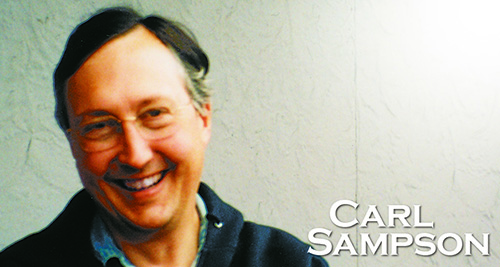Oy, it’s going to be a long year. Oh, wait, it’s already been a long year.
We have viruses to the right of us, economic heart murmurs to the left of us and presidential politics all around us. Yikes!
Those of us who were around in the 1960s and 1970s remember the years of turmoil. The Cuban Missile Crisis, the assassination of President Kennedy, civil rights demonstrations, police riots, national guardsmen shooting kids for being against the Vietnam War and the assassinations of Dr. Martin Luther King Jr. and Robert Kennedy.
Then there was Watergate and the resignation of President Nixon.
For a while, it seemed as though the only persons we could trust were Walter Cronkite and the reporters and editors at newspapers across the nation. We trusted them because they didn’t choose sides. They worked their rear ends off to tell the public – us – what was going on, and why.
Cronkite, as the anchor for the CBS Evening News, was our go-to guy for
fair and balanced news. He and guys like Bob Woodward and Carl Bernstein were household names because they earned our trust.
Fast forward to 2020, and I’m not sure anyone has that level of trust in the talking heads, pundits, bloggers and big-mouths on TV or the internet.
So how can someone who wants the straight news separate well-reported and unbiased stories from the all that
other stuff?
First, it’s critical to separate news stories from opinions. Almost everything you see on social media is opinion. If you’re tempted to believe it is unbiased news, don’t. It’s just the electronic version of the Opinion page in a newspaper. Take it for what it is.
You can find solid reporting and good writing, but you have to recognize it. I have some red flags that I look for when I’m editing a news story – I’ve been at it for 45 years. A red flag means that I will send a note to the reporter and ask him, or her, to fix it. Here they are:
Red Flag No. 1: Sourcing. Who did the reporter talk to, and do those voices reflect the major aspects of the topic? For example, no sources are referenced in some news stories. That leads me to believe the reporters didn’t interview anyone to get the facts. If they did, who was it? If they didn’t, why not?
Red Flag No. 2: Single-source stories. In a news story, more than one aspect always needs to be reported. By definition, a story with only one source is missing something.
Red Flag No. 3: Word choice. I can’t tell you how many times I have heard and read stories that announce that the economy has “collapsed,” yet it hasn’t. I also hear the word “unprecedented” a lot. It’s not. Anyone who took high school history knows there is nothing new in the world. The Chicken Littles who insist that the sky is falling are, simply put, wrong – and revealing their ignorance. Maybe if they interviewed knowledgeable sources they would learn that.
Red Flag No. 4: Reporters interviewing reporters. Some radio and TV shows like to do this and I don’t know why.
My only thought is they were unable to find someone who had direct knowledge about an issue and settled for second-hand knowledge. The word “lazy” also comes to mind.
Red Flag No. 5: Where’d that come from, and when? On the internet, videos often pop up to bolster one argument or the other. The only problem is where and when the video was recorded often is left out. Did it happen last night, or five years ago? If it’s old, then what does it have to do with what’s going now?
Red Flag No. 6: The social media “wild West.” Facebook and other social media platforms were specifically exempted from being held liable for the content they allow to be posted. Practically anyone can post anything – true or not – on social media. That exemption was one of the biggest mistakes Congress has ever made. The owners of Facebook, Twitter and all the other platforms must be held responsible for that stuff.
There is some darnn fine reporting being done out there, but you have to look for it. By looking for these red flags, the good stuff will stand out and the junk will fall by the wayside.
Good journalism makes for a strong democracy. If you insist on only reading the best of the best, our democracy will be in safe hands.
Carl Sampson is a freelance writer and editor. He lives in Stayton.
